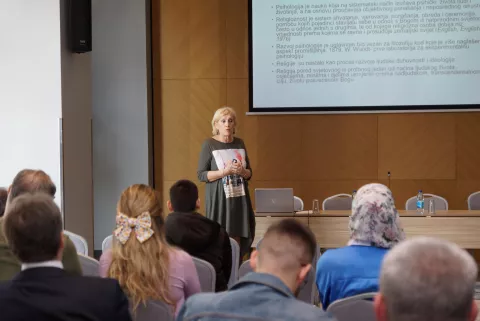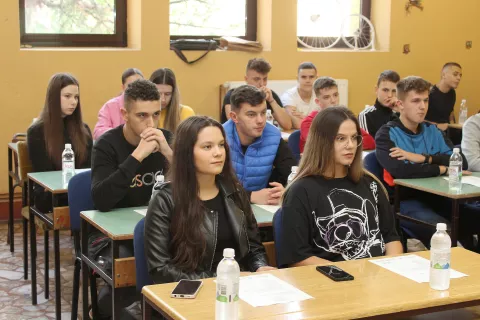We couldn't risk any of us getting infected because it would threaten the entire community
75 Roma families receive hygiene kits

- Available in:
- Bosanski/Hrvatski/Srpski
- English
Although most of them without face masks, about a hundred Roma men and women from Malo Čajno in Visoko, along with their children, welcomed the UNICEF and USAID delegation with smiles on their faces, who prepared hygiene kits for them. It was a part of the action that these two organisations are carrying out all over the world, including Bosnia and Herzegovina (BiH), all with one goal - to help those most vulnerable in the fight against COVID-19. The hygiene kits were given to 75 families from this community, and considering the fact that one hundred kits were planned for distribution, the rest was delivered to Roma from another community.
This was a great help to the members of this community who, due to the pandemic, were unable to work and earn money, thus unable to provide their family with food, as well as hygienic supplies necessary for the prevention of the coronavirus infection.
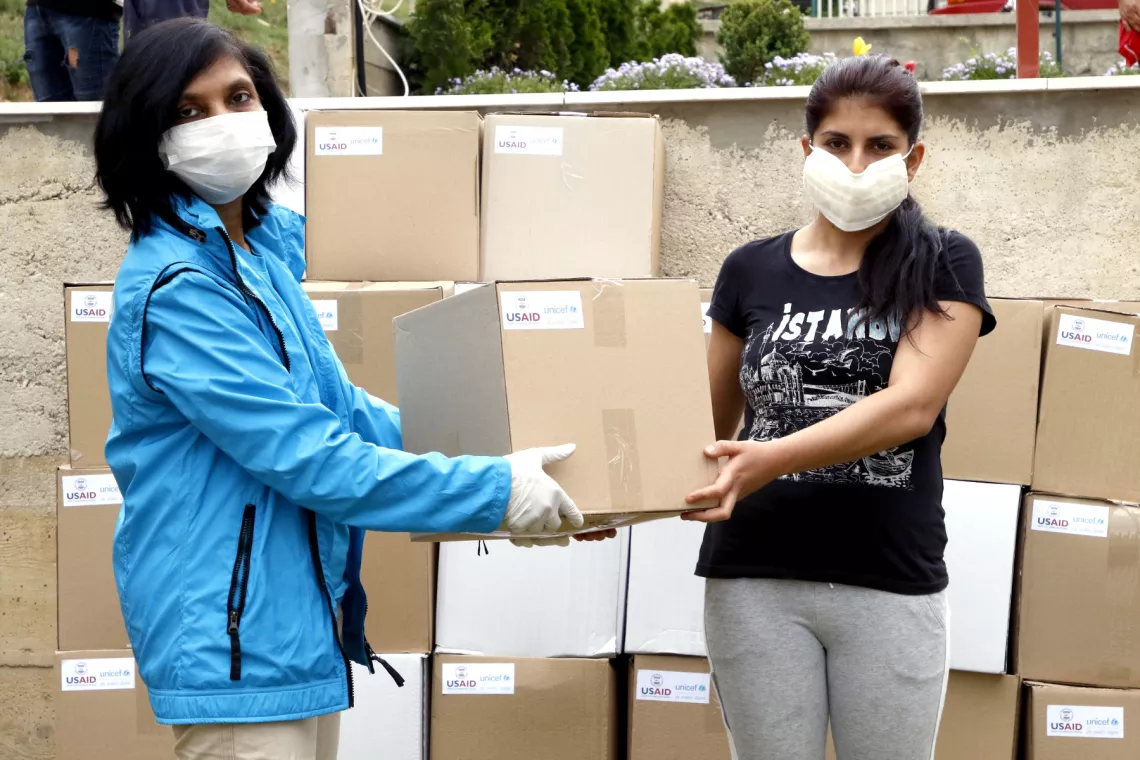
"As soon as I came to Malo Čajno, I realised how much help these people really need in terms of hygiene necessities, because not all can afford the supplies needed to maintain hygiene, due to their socio-economic status. We at UNICEF are working with the Roma community to ensure proper immunisation coverage of children. Also, we are working on improving access to education through school enrollment, as well as the early growth and development of children. According to recent data, the rate of immunisation of Roma children is only four percent. This puts the community at a high risk of contracting infectious diseases", said Rownak Khan, UNICEF Representative in BiH.
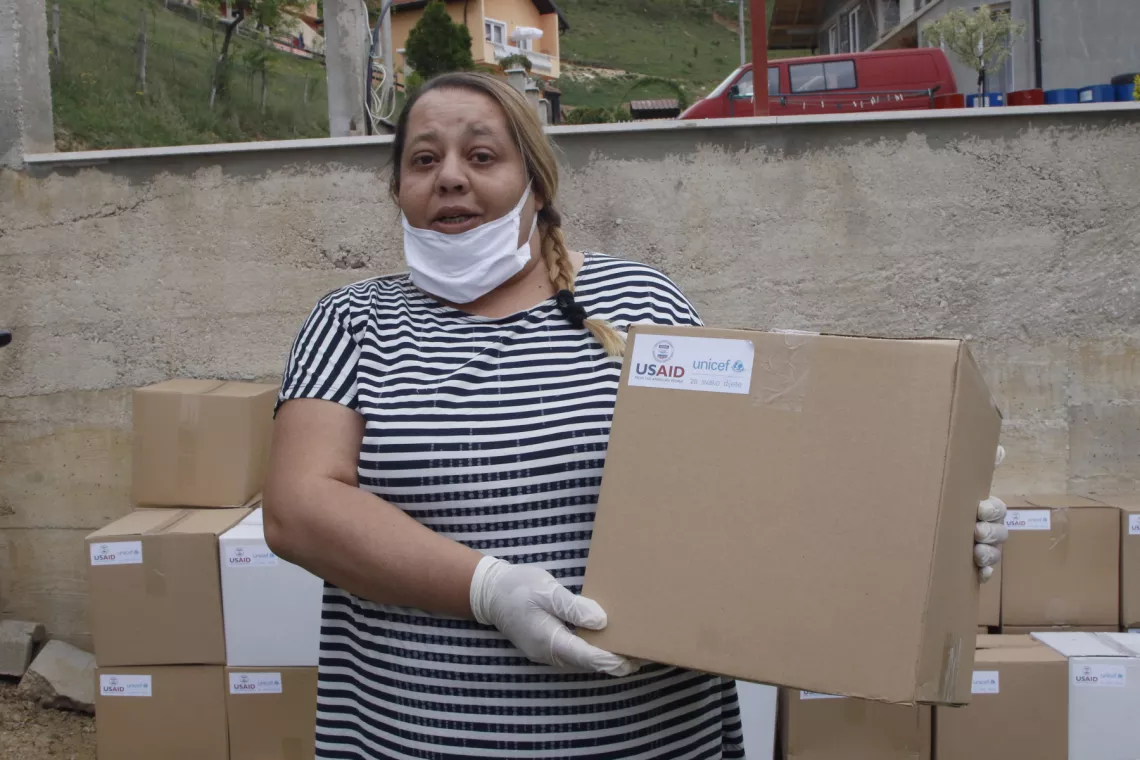
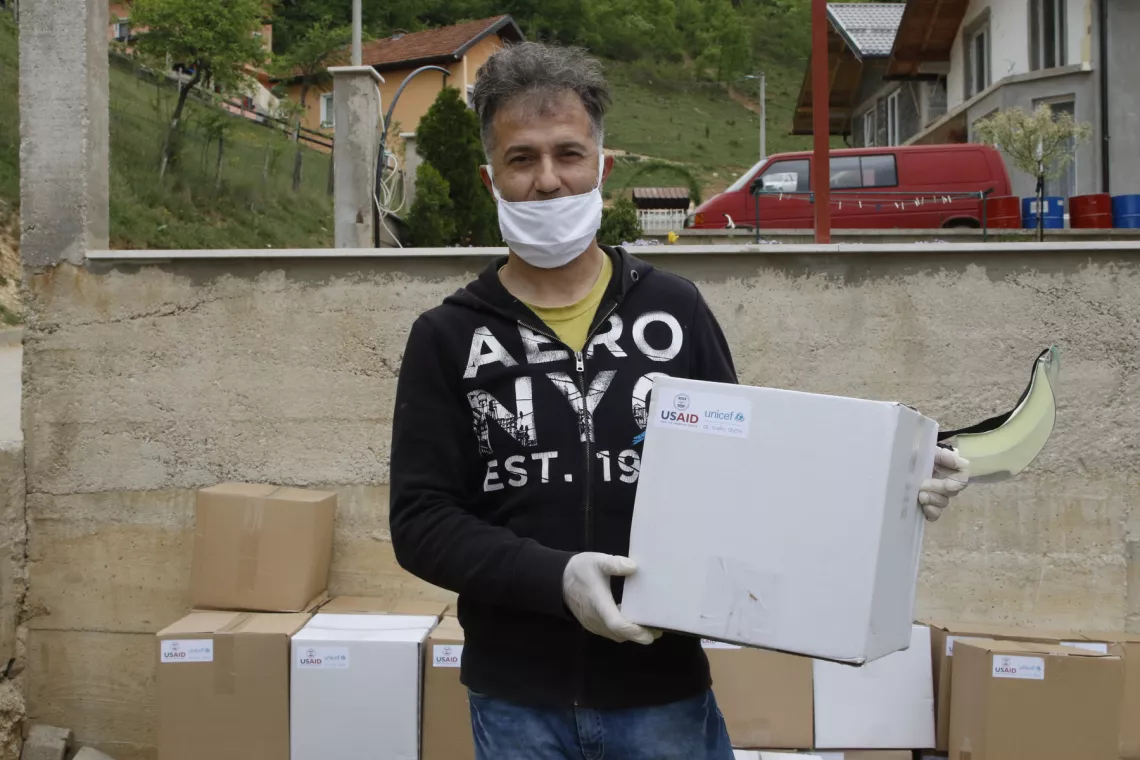
Community's residents Alma Agić and Samir Bešić, who volunteered to help in distribution of the packages, emphasise that this aid was most welcome in the defense against the coronavirus.
"Thank you UNICEF and USAID for not forgetting us. We went through a difficult period because people couldn’t work and it was hard for us to fight the coronavirus. The hardest thing for us was lack of food, let alone hygiene products. So, we are very grateful to them for helping us in this way, and I hope that they will not forget us in the coming period as well", said Agic.
According to Bešić, they fought the pandemic mostly with isolation and distance, whereas their children were locked inside for days. They couldn't risk any of them getting infected because that would threaten the entire community.
The USAID Mission Director to BiH, Nancy J. Eslick said it was a pleasure to help this vulnerable community, noting that around 1,600 Roma families across BiH will receive hygiene packages over the next few weeks.
Mujo Fafulić, from the NGO "Romalen", which is implementing the project "Immunisation for Every Child in BiH" in cooperation with UNICEF, confirmed that this was not the only help to the Roma community.
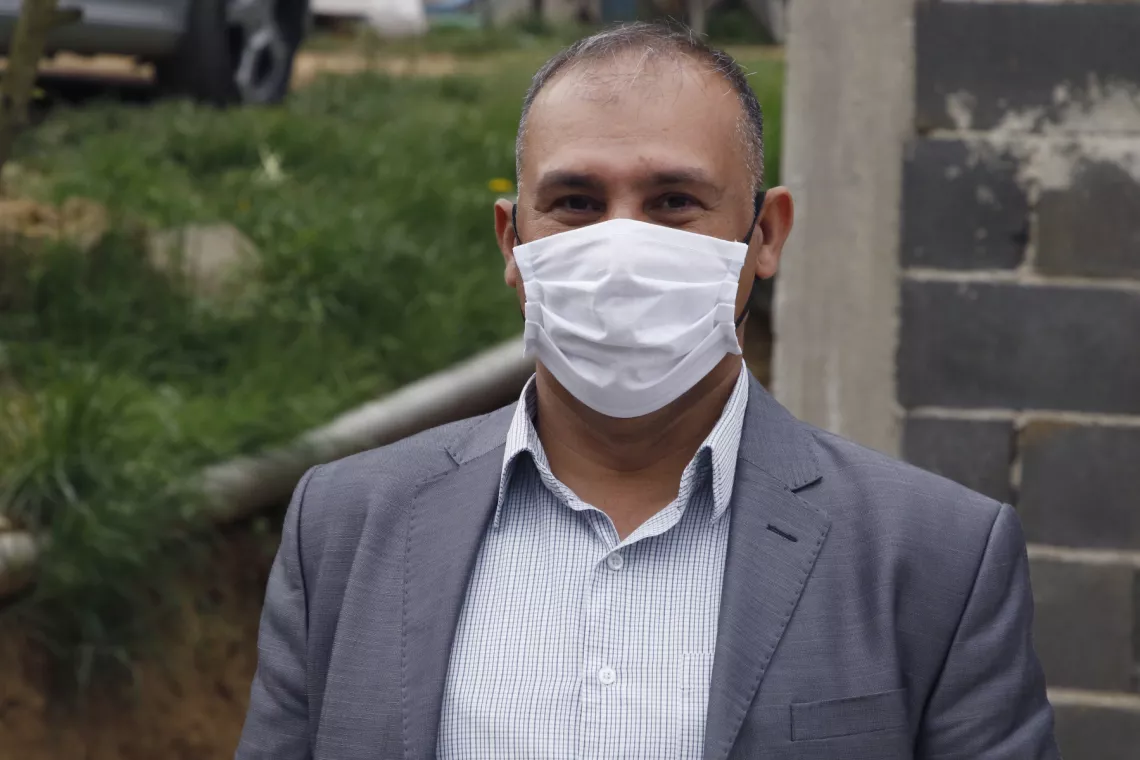
"Considering that a very small number of Roma children are regularly vaccinated, we are working on raising awareness, prevention and the importance of immunisation in Roma communities. We are also working with UNICEF to prevent child marriages and human trafficking. It is very important that we deal with this, because the Roma community is specific in this way, and it happened that girls aged 13-14, were in extramarital unions, mostly with adults. There are these arranged marriages, where the parents or some other family members arranged the marriage of a minor girl with an adult, so through the project we are currently implementing we are trying to prevent that, telling how harmful it is for the girl herself, for the family, community, and in some way raising awareness among government institutions, saying they should equally react in such situations, regardless of the fact that it is about the Roma population, a Roma girl", Fafulić pointed out.
The distribution of these donations was organized in cooperation with the association of Roma NGOs, "Kali Sara - Roma Information Center", Roma Association "Euro Rom" from Tuzla, Roma Women Association "Bolja budućnost" from Tuzla and the Roma Support Center "Romalen" from Kakanj.
The donation delivered in Visoko and Sarajevo is part of a larger response by USAID and UNICEF to affected populations, responding to urgent requests from governments at all levels. $ 500,000 was provided by USAID through UNICEF to coordinate the response, with a focus on risk communication, mental and psychosocial support, procurement of hygiene kits, and promotion of the most significant behavioral changes at the community level.


